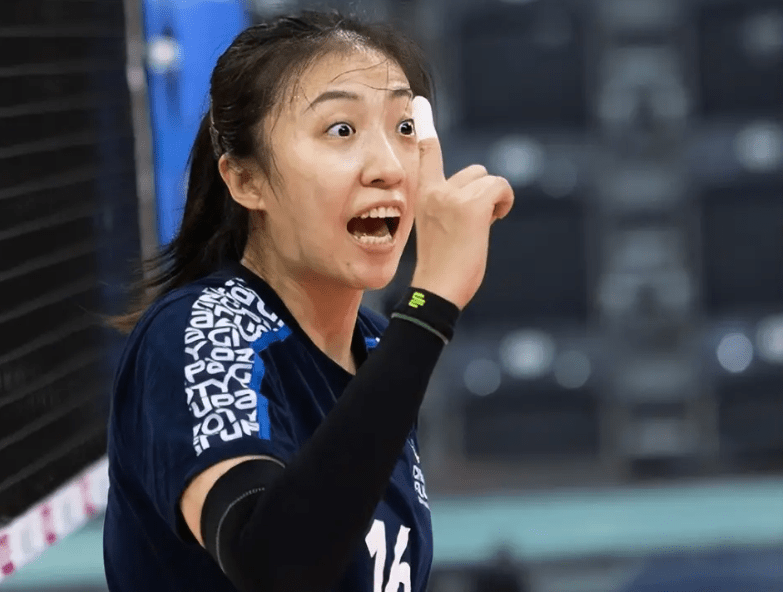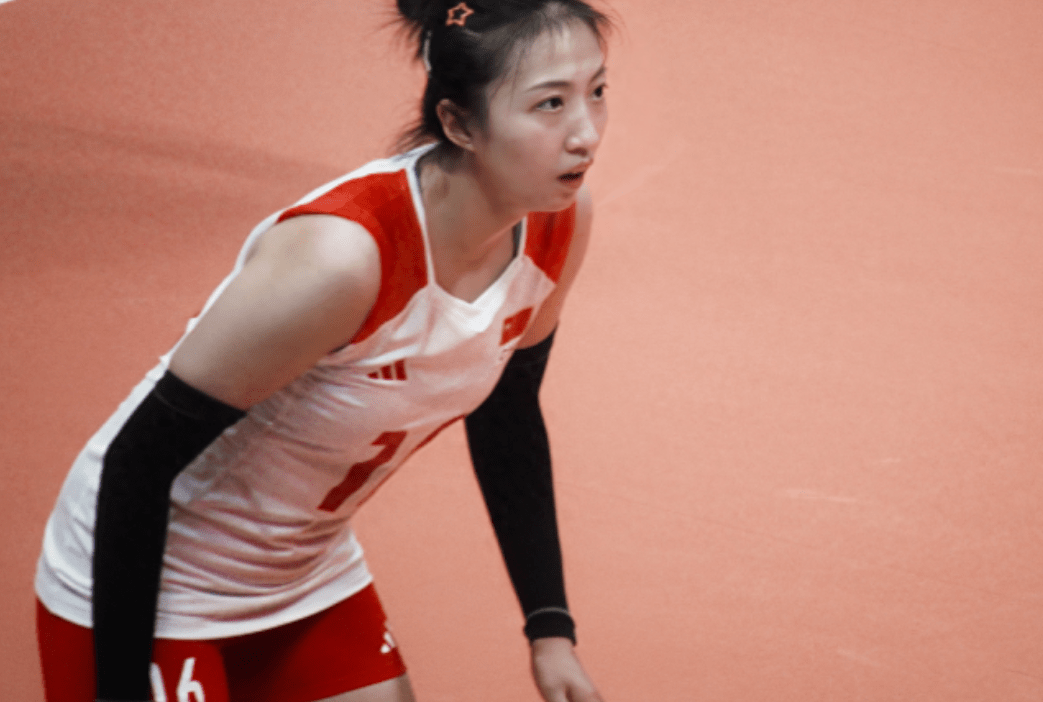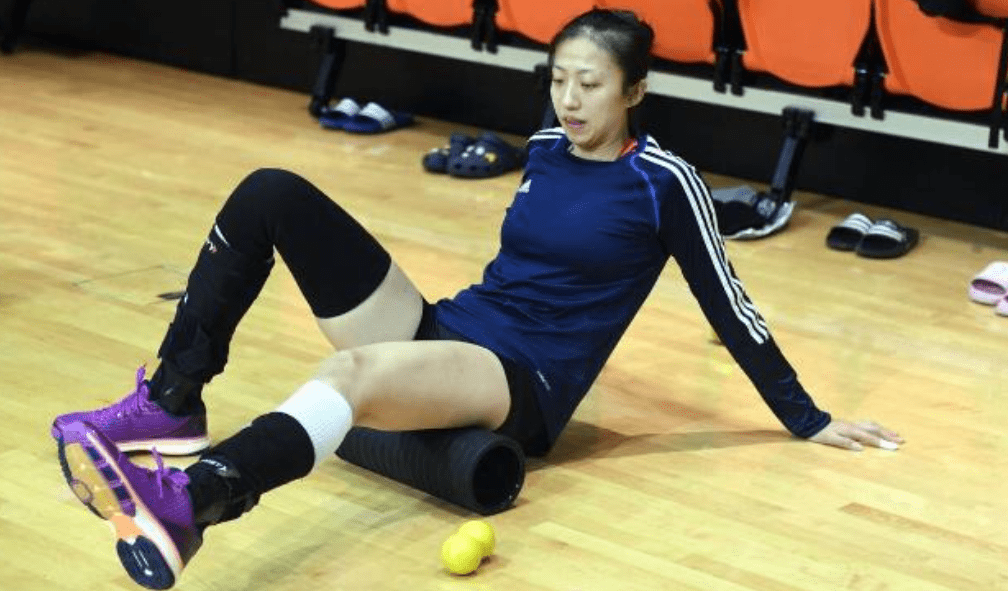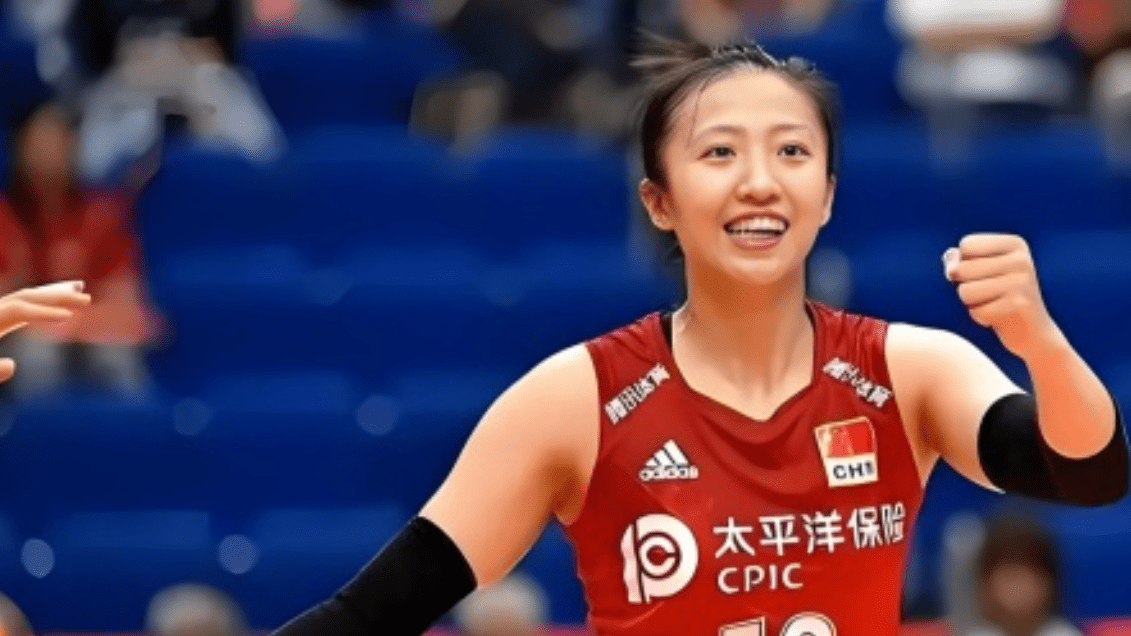In the world of competitive sports, intense rivalries are commonplace. However, a recent match between the Liaoning and Shandong women's volleyball teams has raised eyebrows due to the heated exchanges that occurred on the court, involving players Ding Xia and Yang Hanyu, as well as referee interventions. The situation escalated when Du Qingqing received a yellow card for an expletive, and Yang Hanyu later took to social media to vent her frustrations. What exactly transpired during the match, and what does this conflict reveal about underlying issues within the sport?

The incident began with a disputed play where Liaoning challenged Shandong for a net touch. Ding Xia approached the referee aggressively, insisting that Yang Hanyu had touched the net and should be given a yellow card. Yang Hanyu, feeling wronged, engaged in a heated argument with Ding Xia on the court, with both sides growing increasingly agitated.

The tension did not end there. During a defensive error, Shandong's main attacker Du Qingqing uttered an expletive, which was overheard by Ding Xia. Ding immediately reported the comment to the referee as an "insulting remark," resulting in Du Qingqing receiving a yellow card. This decision further inflamed tensions within the Shandong team and served as a catalyst for the escalating conflict between Yang Hanyu and Ding Xia.

This seemingly straightforward on-court dispute prompts deeper reflection: is this merely a common sports controversy, or does it point to more profound problems?

The intensity from the court spilled over into social media after the match. Yang Hanyu, the deputy attacker from Shandong, posted a lengthy article online, openly accusing Ding Xia of unsportsmanlike conduct during the game. She detailed instances of Ding Xia's verbal abuse, exerting pressure on the referees, and even hinted at Ding's "behind-the-scenes power" and internal conflicts within the national women's volleyball team during the Tokyo Olympics.

Yang Hanyu's post quickly went viral, drawing mixed reactions from netizens. Some praised her courage for speaking out, while others criticized her for discussing on-court matters publicly, suggesting she might be "passing the buck" or seeking attention.

Meanwhile, Ding Xia found herself at the center of public scrutiny. Netizens revisited her previous altercation with Liaoning veteran Wang Yimei, noting Ding's competitive and combative nature. Some questioned her suitability as a national people's congress representative, asking, "Can such a foul-mouthed representative pay more attention to their image?"

Yang Hanyu's mention of the Tokyo Olympics dropped a bombshell. She implied that internal conflicts within the national team might have affected their performance, highlighting Ding Xia's significant influence within the team. China's women's volleyball team underperformed at the Tokyo Olympics, which was initially attributed to high pressure and poor form, but Yang Hanyu's comments suggest there may have been deeper issues at play: disharmony within the team.

It is not difficult to understand that team sports rely heavily on coordination and atmosphere. When discord arises among teammates, it naturally affects their cooperation. The team's failure at the Tokyo Olympics could be attributed to various factors, but internal conflicts are undoubtedly a significant aspect.

However, the credibility of Yang Hanyu's implications and the appropriateness of her public statements after the match are open to interpretation. What is certain is that her remarks have once again put Ding Xia's image under scrutiny.

Ding Xia's assertive personality is no secret. On the court, she often takes on the role of a "captain-like figure," fiercely competitive and actively engaging with referees to advocate for her team's interests. Such a personality can be an asset in competitive sports, providing the necessary spirit and drive for the team. However, if this assertiveness becomes excessive, it may become challenging for both teammates and opponents to accept.
During this match, Ding Xia repeatedly confronted the referees, whether over net-touch disputes or complaints against Du Qingqing, giving the impression of being overly confrontational. Combined with the resurfacing of her past conflict with Wang Yimei, netizens' evaluations of her character were overwhelmingly "assertive" and "difficult to get along with."
The question remains: is assertiveness beneficial or detrimental in team sports? While it can foster a positive competitive edge, it may also create tension within the team. In high-profile teams like China's women's volleyball, individual emotions and personalities are magnified, potentially impacting the entire team's performance.
Ding Xia's frequent pressure on the referees has also become a point of contention in this incident. Her assertiveness may exert pressure on the referees and alter the pace of the game. However, if referees allow themselves to be swayed by players' emotions and issue yellow cards, how can the fairness of the match be maintained?
Du Qingqing's yellow card serves as a prime example. Does the phrase "I rely on" constitute an "insulting remark"? Was the yellow card issued by the referee just? These questions have sparked heated discussions among netizens.
The importance of referees in a match is clear, but in such high-pressure competitions, they must possess greater resilience. Regardless of how intense emotions on the court become, referees must make calm and fair judgments to avoid exacerbating conflicts.
The conflict between Ding Xia and Yang Hanyu is not merely a personal dispute but reflects the delicate relationship between personality and collaboration in team sports.
Volleyball, above all, emphasizes coordination and chemistry, and there is no place for solo efforts. If someone within a team is too domineering, others may feel suppressed; if no one dares to speak up, internal conflicts can easily fester. Striking a balance between individuality and teamwork remains a challenge.
Based on Ding Xia's performance, she is undoubtedly an excellent player on the court. However, she may need to reflect on how her assertive personality affects her teammates' morale. Yang Hanyu's public outburst also serves as a reminder to athletes: should internal team conflicts be brought to light?
Competitive sports are about competition and collaboration. Beyond the intensity on the court, they are a test of team dynamics. Resolving conflicts is possible, but the key lies in finding that delicate balance.